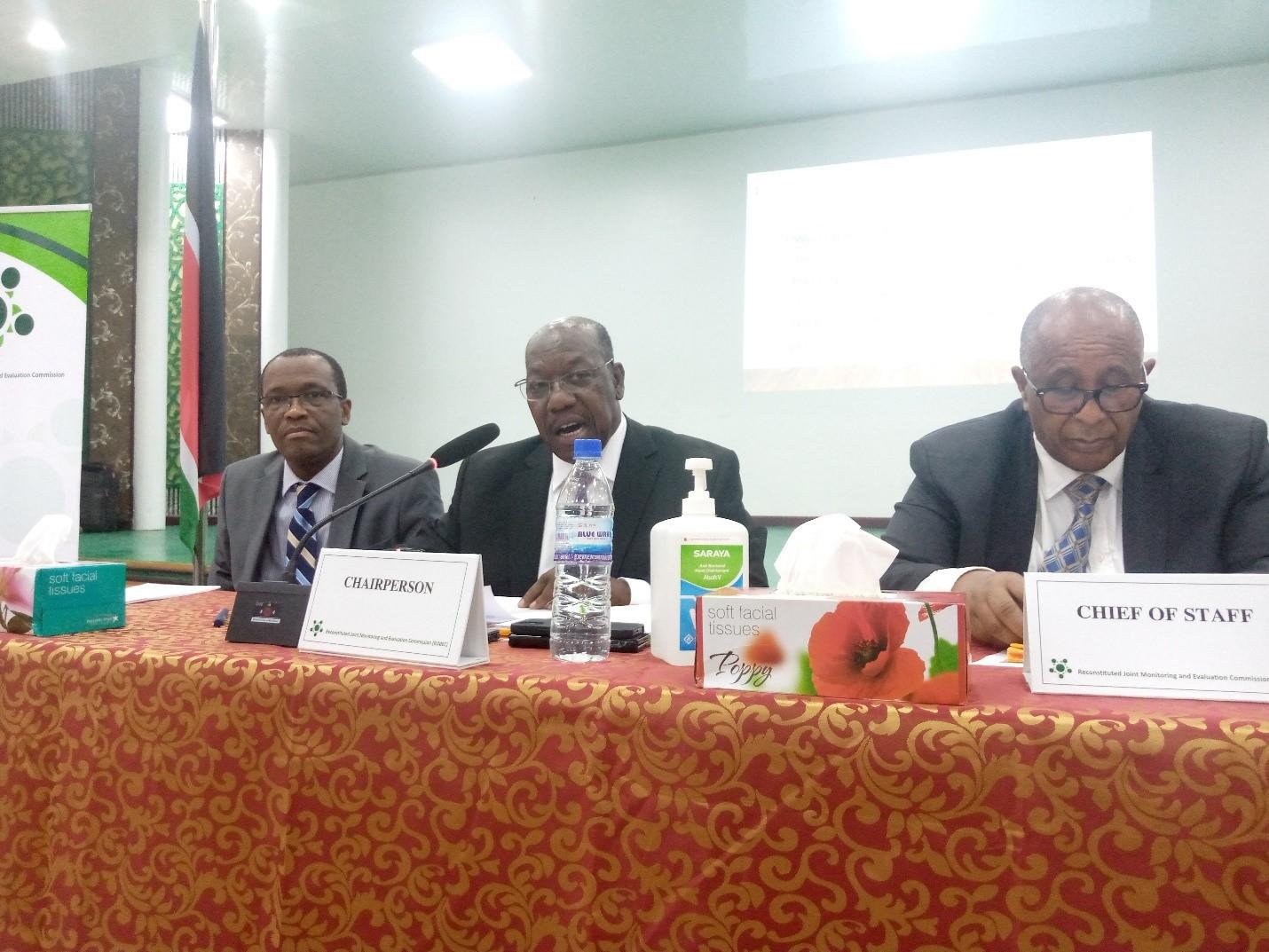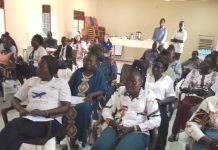Africa-Press – South-Sudan. The Reconstituted Joint Monitoring and Evaluation Commission (RJMEC) has faulted the political parties over the ‘‘lack of political will to implement the peace pact.’’
Maj. Gen. Charles Tai Gituai, the RJMEC Interim Chairperson, said during the 23rd RJMEC plenary on Thursday in Juba that things would have been better if parties had shown a readiness to implement the agreement in spirit and word.
He said it is imperative to note that there are cross-cutting challenges which have hampered the implementation of the Revitalised Peace Agreement.
The RJMEC boss said the causes of the country’s delay in implementing peace include the party’s ‘‘insufficient political will; delay in the unification of forces; funding military defection; trust deficit; capacity gaps; the cumulative effects of prolonged subnational conflicts; and the dire humanitarian situation in the country caused by natural calamities.’’
Maj. Gen. Charles added that unless parties show a willingness to implement the peace agreement, there would not be progress in expediting the aforementioned challenges.
He said there is a need to urgently and collectively address challenges to move forward.
“The R-ARCSS lays the foundation for a united, peaceful, and prosperous society based on justice, equality, respect for human rights, and the rule of law.”
However, the RJMEC boss stressed that continuous delays in the implementation of the agreement have consequential effects, as witnessed in the recent incidents of military defections and the associated violent confrontations.
Grievances raised
He also expressed concerns regarding the continuous occupation of civilian centres by the SSPDF and SPLA-IO, the recent denial of access to CTSAMVM and attacks by the SSPDF on the SPLA-IO forces in Upper Nile and the Unity States.
“Most disturbingly, reports of sexual and gender-based violence (SGBV) in Koch and Leer Counties in Unity State, including the deaths of an unspecified number of people, destruction of property and displacement of civilians,” he added.
Maj. Gen. Charles stressed that the critical focus at this time should be to consolidate the peace dividends which have been achieved thus far by implementing the outstanding tasks of the R-ARCSS.
He also highlighted the pending tasks of the Agreement, under which chapter one on governance.
Other areas touched on were judicial reforms, including review of the Judiciary Act, the establishment of an ad hoc Judicial Reform Committee, reconstitution of the Judicial Service Commission, and the establishment of an independent, impartial, and credible Constitutional Court.
He called for the completion of reviews of legislation, including the National Elections Act 2012, by the NCAC to conform to the provisions of the R-ARCSS; The completion of the process of restructuring and reconstitution of commissions and institutions at the national level; the enactment of the amended Security bills and the Constitution-Making Process Bill; and
Reconstitution of a competent and impartial National Elections Commission, the Political Parties Council, and preparations for holding free, fair, and credible national elections
For his part, Nicholas Haysom, Secretary-General’s Special Representative and head of UNMISS, welcomed the progress made in Chapter 2 employing the April 3 Agreement on the command structures and subsequent appointments.
However, he encouraged parties to continue in the spirit of compromise and accelerate their efforts by graduating the first batch of the NUF, which was promised by June 3.
“Notable progress was also made in Chapter 5 regarding the Commission for Truth, Reconciliation, and Healing (CTRH). It is encouraging to see that the public consultation process has begun in earnest by dispatching members from the technical committee of the Commission to different states. “
According to the UNMISS boss, such a process provides the platform to realise the rights to truth, justice, reparation, and the guarantees of non-recurrence by addressing the root causes of past trauma.
Meanwhile, Martin Elia Lomuro, the Cabinet Affairs Minister, stated that the government is doing everything possible in order to implement the remaining tasks of the implementation of chapters.
“What we are doing now is to prepare the road map for the tasks that have not been implemented.” The road map will be constituted and feature the time frame and completion of the unification of the command and forces, including their deployments.
“The second stage will comprise of the programs and plans for dissemination of peace agreements and peace building, which are necessary to prepare the ground for government delegations to now go and tell the people where we are with the agreement and where we are heading with the agreement,” he said.
For More News And Analysis About South-Sudan Follow Africa-Press






